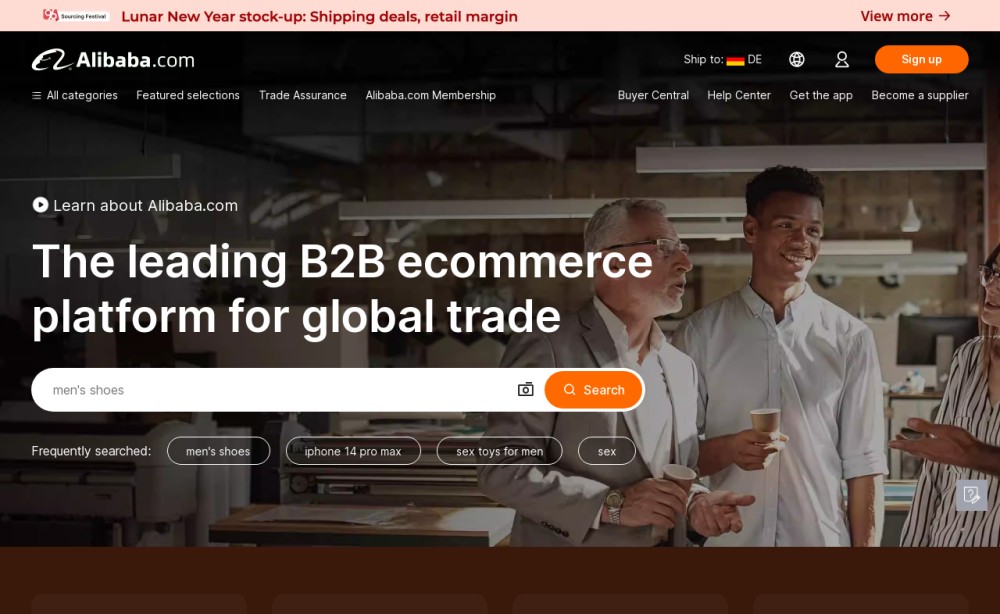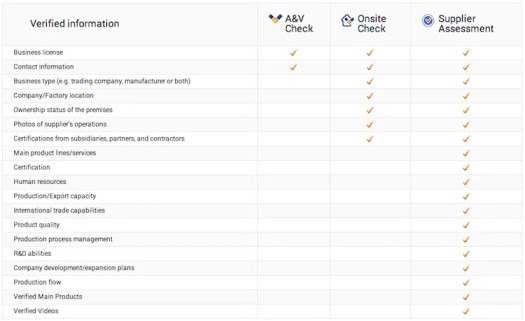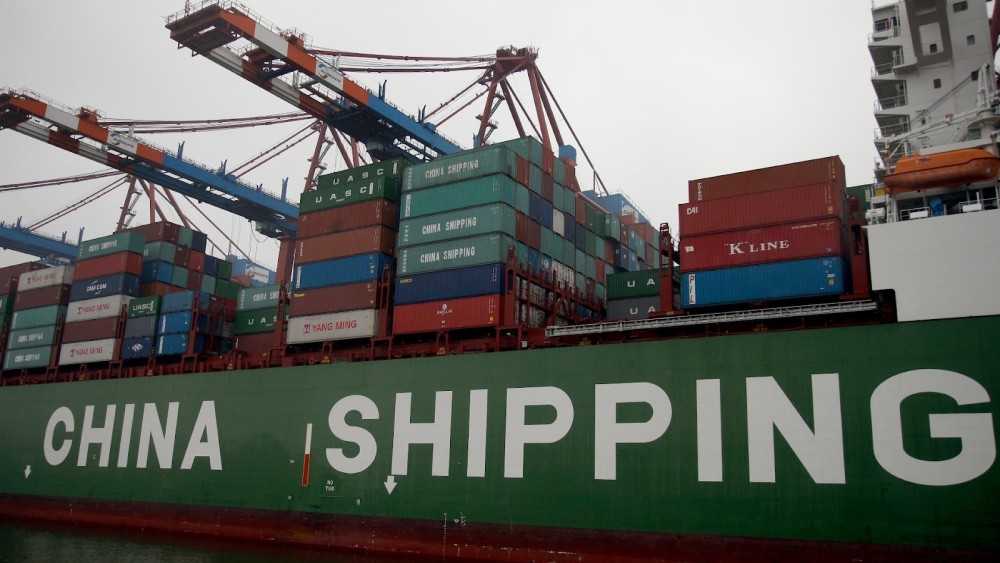So you are finally ready to start sourcing your new product ideas from Alibaba, the Chinese e-commerce directory connecting buyers from all over the world and providing cheap sourcing options for businesses of all sizes?

But what’s the next step?
In this post, we’ll cover:
- How to use Alibaba effectively for your buying needs
- Tips on choosing the easiest and safest payment options on Alibaba
We understand that buying from Alibaba might seem daunting due to concerns about payment security and the sheer range of options available. This guide is designed to simplify the process for you, ensuring a smooth and secure buying experience.
Let’s dig in!
- How to find a reliable Alibaba supplier for quality products
- How to negotiate with an Alibaba supplier.
- Factors to consider when choosing a payment method Choosing the best payment methods on Alibaba.
- Other verified methods of payment
- Shipping your supplies from Alibaba
- Importing Fees for Goods from Alibaba
- Alibaba’s Return Policy
- Glossary
- Conclusion
How to find a reliable Alibaba supplier for quality products
Alibaba presents millions of products to source, all from the suppliers themselves. You can access a wide range of products from different categories, such as electronics, clothing, jewelry, home and garden, beauty, and more. In essence, you are getting supplier prices at insider rates, typically at a price point only you can easily nab.
Notably, it’s now possible to find entirely unique products on Alibaba and buy them in bulk. However, finding the best suppliers on the platform takes a lot of work.
Here are some tips on how to find quality products with the right supplier:
Review the supplier’s profile: The first step after creating an account on Alibaba is to review the supplier’s profile. See how long they’ve been operating and how many transactions they’ve done. You can also read reviews from other buyers and their feedback. If you find a lot of negative feedback, it’s better to stay away from that supplier. Moreover, you may want to check if the seller is a trade assurance supplier, as this offers you more security against fraud or scams.
Ask about the products: After you’ve identified a few possible Alibaba suppliers, the next step is to ask about the products. You can do this by sending a message via the Alibaba platform. Make sure to provide as much information as you can about what you need, such as specifications, quantities, etc. It’s also wise to request samples so you can verify the quality of the products yourself.
Compare prices and shipping costs: Once you’ve got quotes from the suppliers, it’s time to compare prices and shipping costs. Ensure you’re getting a fair price on the products and that the shipping costs are affordable. Remember that you’ll usually get what you pay for, so don’t choose the cheapest option if it compromises quality. After selecting a supplier you want to work with, the next step is to learn how to negotiate with them.
How to negotiate with an Alibaba supplier
Reaching a deal with your Alibaba supplier involves making the necessary negotiations to get the best price for your product. The key to a successful negotiation is to be ready. This means knowing what you need, what you’re ready to give up, and having a clear idea of the market situation.
You’ll want to consider:
- Budget: How much can you afford to spend on this product?
- Minimum order quantity (MOQ): What’s the smallest amount of product you’re willing to order?
- Lead time: When do you want the products to arrive?
- Shipping: How will the products be shipped – is it by air or by sea? How much will it charge to ship the product?
- Warranty terms: What kind of warranty or guarantee does the supplier provide for defective or faulty items?
- Payment method: How will you pay the supplier and what Alibaba payment methods are supported by the supplier?
- Payment terms: How much will you pay in advance and when will the rest be due?
After you’ve thought about all of these factors, you can begin negotiating with the supplier. Remember to be courteous and be ready to compromise. It’s also important to remember that the supplier is also trying to make a profit, so don’t be too pushy in your negotiations. Try to find a balance that both parties are satisfied with.
Also note that all communications with Chinese suppliers including the negotiations and the agreement, should be done through your Alibaba account as this will be useful later on especially if you have a payment dispute.
After you’ve made an agreement with the supplier and placed the Alibaba trade assurance order, the next step is to figure out how you’re going to pay them.
Factors to consider when choosing a payment method
Buyer Protection: Selecting a payment option that provides buyer protection is important in safeguarding your order. Alibaba’s Trade Assurance is a reliable way to secure buyer protection. It covers you in scenarios where the order is delayed, the product quality doesn’t meet expectations, or the supplier fails to meet the agreement terms.
Ease of Use: The ease with which you can make payments is another critical factor. For instance, when using a credit card, verify that the supplier recognizes your specific card type.
Transaction Costs: Consider the costs associated with your chosen payment method. Wire transfers, for example, may incur additional bank or currency exchange fees.
Payment Agreements with Suppliers: Negotiate payment terms with your supplier, including the payment schedule (such as 50% in advance and the remaining upon delivery), the payment method (like wire transfer or credit card), and the currency used for payment (USD, CNY, etc.).
Processing Time: The urgency of your order may influence your payment method choice. Credit card payments typically process faster than those made through services like Western Union, making them a preferable option for time-sensitive transactions.
Choosing the best payment methods on Alibaba
Alibaba offers a variety of payment methods without forcing a particular one on you. You have the right to choose the payment method that suits you best and a supplier cannot compel you to pay with a specific method.
Here’s a breakdown of the payment methods available on Alibaba, ensuring you select a secure and fitting option for your business needs.
WireTransfer (T/T Payment)
Telegraphic Transfer (T/T), or bank wire transfer, stands as Alibaba’s most utilized payment mode. Directly transferring funds from your bank to the supplier’s, it boasts security with minimal involvement of third parties.
- Pros: Secure, with relatively low international transfer fees (USD 40) and generally favorable exchange rates.
- Cons: International transfers can take 3 to 7 business days, affecting planning due to potential delays.
- Recommendations: Exercise caution with new suppliers. Consider Alibaba’s Trade Assurance for added security and negotiate staggered payment terms (e.g., 30% upfront, 70% upon delivery) to mitigate risks.
Letter of Credit (L/C Payment)
L/C Payment involves a financial institution guarantee. You establish a credit line with your bank, which pays the supplier post-shipment.
- Pros: High security, with payment contingent on product receipt, aiding cash flow management.
- Cons: Potentially costly with associated fees and slow transaction pace due to banking procedures.
- Recommendations: Best for large orders with new suppliers, given the security and cash flow benefits.
PayPal
PayPal facilitates global payments directly from your bank account or via credit/debit cards.
- Pros: Offers buyer protection, with instant fund transfer and widespread acceptance among Alibaba suppliers.
- Cons: High fees for non-USD transactions and potentially unfavorable exchange rates.
- Recommendations: Optimal for transactions with trusted suppliers, provided you’re aware of the exchange rates and fees.
Alibaba Online Transfer
Direct bank-to-bank transfers are secure but limited to certain countries.
- Pros: Direct bank account transfers offer an Alibaba-secured method.
- Cons: Transactions may take 1-2 days with transfer fees of $15 to $25.
- Recommendations: Suitable for small to medium orders. Consider other methods for larger transactions.
Debit or Credit Card
Alibaba.com accepts multi-currency card payments at checkout.
- Pros: Convenient for multi-currency transactions.
- Cons: High transaction fees (2.99%) and potential currency conversion fees.
- Recommendations: Use if transaction fees are acceptable for your budget.
Payment Links
Facilitates direct payments to suppliers within Alibaba’s system.
- Pros: Immediate transaction reflection in the seller’s account with minimal fees.
- Disadvantages: Fixed transaction fee of 2%-4%, with some companies imposing additional charges.
- Recommendations: Ideal for sample orders if fees are manageable.
Western Union
Available for US-based payments, offering another trade assurance payment option.
- Pros: Convenient and secure for US users.
- Cons: Limited availability, slow processing, and high fees starting from $30.
- Recommendations: A viable option for US-based buyers comfortable with the fees.
Other verified methods of payment
The options above might seem like a lot to take in. Apply these other methods for a seamless transaction:
- Consider sourcing for a trusted local RMB seller. Exchange rates can be negotiated with your local dealer, who then pays the Alibaba supplier. This method streamlines the payment process, especially when combined with shipping arrangements.
- Options like virtual cards from platforms like Cedar Money facilitate easier payments. While payment on delivery might not be widespread for wholesalers, these alternatives ensure a seamless transaction. A dollar card or a virtual card is a prepaid card that you can use to pay for online transactions in foreign currencies. For instance, you can fund your card with naira and convert it to CNY or any other currency at a favorable exchange rate. You can also avoid the hassle and cost of opening a domiciliary account or using a bank transfer. Cedar Money offers fast, secure, and low-cost cross-border payments and transactions. You can pay suppliers worldwide in their currency, for low fees and the mid-market rate. You won’t pay extra charges from your bank or get a bad rate.
Here’s how to do it:
Simply pay on Alibaba with any debit or credit card. The site may charge a fee, but you’ll pay a low fee to convert the money (at the mid-market rate), or no fee if you have the currency in your account. You’ll see the fees and the rate before you pay. This way, you know the exact cost of the payment.
Shipping your supplies from Alibaba
Once you decide on the items you want, asking your supplier to handle the shipping and include the cost in your invoice might simplify the process.
For items under 200 lbs., air shipping via carriers like FedEx and UPS is common. However, for goods over 200 lbs., sea freight becomes more cost-effective, though you might need a freight forwarder’s help. A freight forwarder or a shipping agent will find you cost-effective and affordable shipping options. You can use your network or Facebook groups for recommendations.
Because of the current exorbitant shipping rates, sometimes suppliers can use the shipping price to add an extra markup and take advantage of you. You can also use Alibaba’s logistics service, which offers competitive rates and reliable delivery.
Air freight from China to the USA averages $2.50 to $4 per pound. In contrast, sea freight for a container ranges from $2,000 to $3,000.
Importing Fees for Goods from Alibaba
These are costs to take note of :
- Customs Duties: For items over $800 from China to the US, customs duties are generally required, except for purchases under $800, which are usually exempt except for certain items like alcohol or tobacco. Duties are determined by the product’s HS code, or HTSUS code in the US. Identifying this code will help ascertain the duty rate.
- Taxes: Additional taxes, such as the Goods and Services Tax (GST), may apply based on your location.
- Import Fees: Other charges may include section 301 tariffs, anti-dumping duties, harbor maintenance fees, and merchandise processing fees in the US.
- Brokerage Fees: Using a customs broker incurs fees for their services in facilitating the import process.
Alibaba’s Return Policy
As for Alibaba’s return policy, they offer an Easy Return service under their Trade Assurance program. This is helpful if you have issues with “poor quality” or “wrong materials” for orders up to $3,000.
If you need to return something, you get 15 days to send the products back to the warehouse once your return request is approved. The good news is, shipping back to the warehouse is free if you use the methods they provide.
However, if you decide to return the products using your own method, you will have to pay for the shipping costs yourself.
Glossary
Common Terminologies when sourcing from Alibaba include:
- FOB: You might see that there’s a FOB unit price when you look at a product page. What this means is that the manufacturer will pay the costs that come with getting the product to the port in China but you are responsible for getting the goods from the port to your warehouse.
- CIF: CIF stands for “Cost, Insurance, and Freight.” It’s a term used in international shipping agreements to indicate that the seller is responsible for the cost of the goods, insurance, and freight necessary to bring the goods to the nearest port to the buyer. Under CIF terms, the seller pays the expenses and freight necessary to get the goods to the destination port.
- MOQ: Keep in mind that many suppliers on Alibaba set a minimum order quantity (MOQ), which means you may need to buy at least 200, 500, or even 1,000 units of a product to start trading with them.
- Trade Assurance: Trade Assurance is a free Alibaba service that protects buyers’ orders from payment to delivery. Buyers can choose suppliers that offer this protection and pay only when they are satisfied with their products. Trade Assurance also helps buyers resolve any issues or disputes with their orders.
- EXW: If you notice that a supplier’s price is much lower than all of your other quotes, make sure that they are not quoting you Ex Works or EXW pricing. EXW is an international trade term that essentially means that the buyer must cover all of the transport costs.
- RFQ: The Request for Quotation (RFQ) feature on Alibaba.com is a handy tool for buyers to get the best prices for products they are interested in. Here’s how it works: as a buyer, you describe what you’re looking for, and sellers respond with their price estimates. This lets you easily compare prices from different suppliers to find the best deal.
Conclusion
Paying on Alibaba is easy and safe if you know what to do. Make sure to use payment methods you trust, talk clearly with your suppliers, and use Alibaba’s Trade Assurance to keep your money safe. By learning about each payment method, you can pick the best one for your business. We hope you find it useful.



